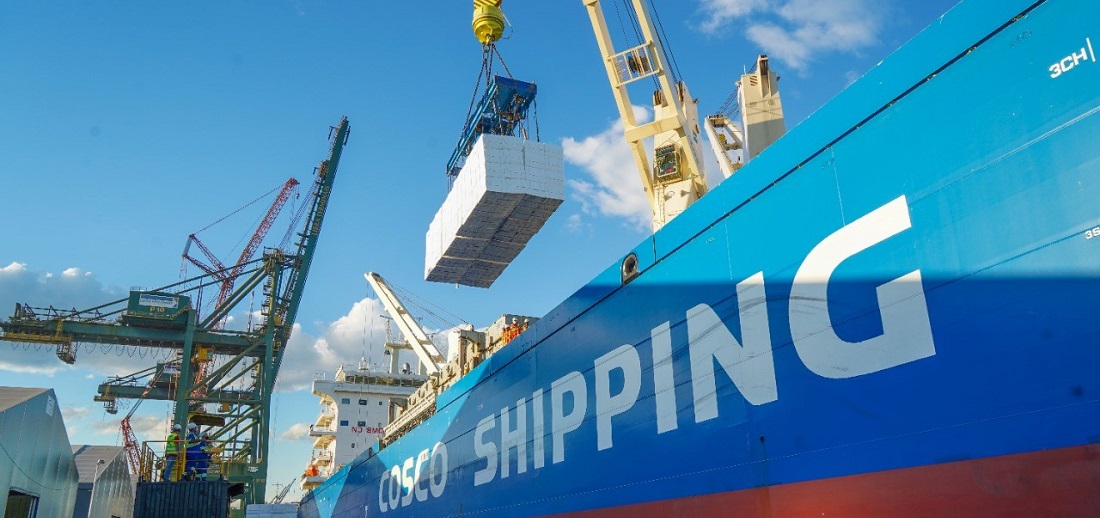
Storm ahead: congested ports, heatwaves worry international pulp market
Aug, 24, 2022 Posted by Gabriel MalheirosWeek 202234
The heat wave in the Northern Hemisphere and protests held at several port terminals will likely exacerbate the maritime congestion experienced worldwide, putting the international pulp market in a complicated situation.
The severe drought in Europe has led factories to shut down or reduce operating hours because of difficulties securing water supply and receiving and transporting products in and out of ports. In China, energy rationing could hit paper mills.
Global 30-day inventories are well below historical levels, falling short of those deemed adequate by the industry.
Brazilian producers argue that lead times should not return to normal this year. Moreover, recent supply and transport problems should maintain prices high for longer than expected. The risk comes primarily from paper mills, which can reduce output and, thus, decrease the intake of raw materials given the multi-faceted supply and demand scenario.
Earlier in the week, Brian McClay & Associates (TTO BMA), a renowned pulp market intelligence firm, called attention to the fact that adverse weather in the Northern Hemisphere will affect supply and demand.
While Spain’s Ence unit in Pontevedra had to stop production because of the low level of the Lérez River, other factories in the Iberian Peninsula and France were forced to reduce their operating rate.
The drought on the Rhine, an important transport route for pulp and paper, reduced the use of barges. “With energy, chemical, and logistics costs on the rise and inflation affecting demand, paper mills in Europe may announce production halts in the coming months,” comments the consultancy.
Also, in regards to logistics, the Bank of America (BofA) reported that pulp supply cycles might increase on average by ten days because of logistical bottlenecks and lockdowns in China, the world’s largest consumer market of the raw material. Such a situation would imply leaving global inventories with enough products to satisfy the demand for 30 days, well below historical levels, and falling short of those deemed adequate by the industry.
On the 23rd, Fastmarkets RISI reported that workers at yet another European port, Felixstowe, the largest container port in the UK, went on strike. Protests had already been recorded at other European, US, and Asian terminals.
“The international logistics chain is still quite pressured,” says Carlos Aníbal de Almeida, Suzano’s director of forestry, logistics, and supplies. Like its peers, the world’s largest paper pulp manufacturer has been struggling with longer-than-usual lead times. However, the CEO claims that its service quality is not jeopardized because it operates from three ports in Brazil and has a fleet of ten exclusive ships.
“Conditions are expected to improve next year. An economic recession can contribute to reducing congestion, but there are still many uncertainties,” says Aníbal.
See below the track record of Brazilian pulp shipments (Mercosur customs code HS 3912) between January 2019 and June 2022. The data are from DataLiner.
Brazilian Cellulose Pulp (HS 3912) Exports | Jan 2019 – Jun 2022 | TEUs
Source: DataLiner (click here to request a demo)
Klabin, which exports a large quantity of paper in addition to cellulose pulp, expects to see signs of improvement in service level and freight costs over the next year. “There are some signs of improvement varying on the route. They are not evenly placed,” says the company’s director of operational planning, logistics, supplies, and IT, Roberto Bisogni.
According to the executive, shipowners have indicated that new vessels will enter the market from 2023 onwards. In addition, reducing restrictions in China to contain the spread of covid-19 significantly contributes to more favorable logistics and fewer vessel booking turndowns.
At home, he says, the Brazil-based company Klabin diversified the mix of products and geographies to mitigate – at least partially – the logistical problems, on top of employing alternatives, such as shipping paper on loose cargo ships (break bulk) instead of using containers. At the height of the crisis, the industry was most affected by the shortage of containers for shipping industrial bags to customers in the Americas.
About two weeks ago, the commercial and logistics director of Eldorado Brasil, Rodrigo Libabar, said that it is not possible to know if the worst is already behind us. In his assessment, there is no prospect of normalization this year or at the beginning of the next. “We see no signs of recovery today. Although there is stabilization ahead, there are still vessel and container delays,” he stated at the Fastmarkets RISI Latin American conference.
Libabar recalled that the logistics cycles in the pulp industry are very long, and because of this, solutions will take time to take effect. “I also don’t believe we will have the same logistics we had before. In fact, there will hardly be a recovery this year, and things will happen gradually until equilibrium is reached again,” he added.
In the European market, hardwood pulp prices more than doubled since the first half of last year to US$ 1,380 per ton last week. In China, the net worth of this type of pulp reached US$865.75 per ton, from around US$460 at the end of 2020.
Source: Valor Econômico
To read the full original article, please go to: https://valor.globo.com/empresas/noticia/2022/08/24/portos-congestionados-e-onda-de-calor-afetam-comercio-de-celulose.ghtml
-
Other Logistics
Jun, 16, 2023
0
Brazil’s North-South Railroad launch rescheduled as bad weather calls off presidential visit
-
Economy
Sep, 30, 2021
0
The EU buys more than half of the processed foods that China buys, and it is no small amount.
-
Ports and Terminals
May, 11, 2022
0
The privatization of the Port of Santos dominates Brazil’s roadshow in the US
-
Ports and Terminals
Sep, 03, 2020
0
Four new port terminals to be awarded to private sector


